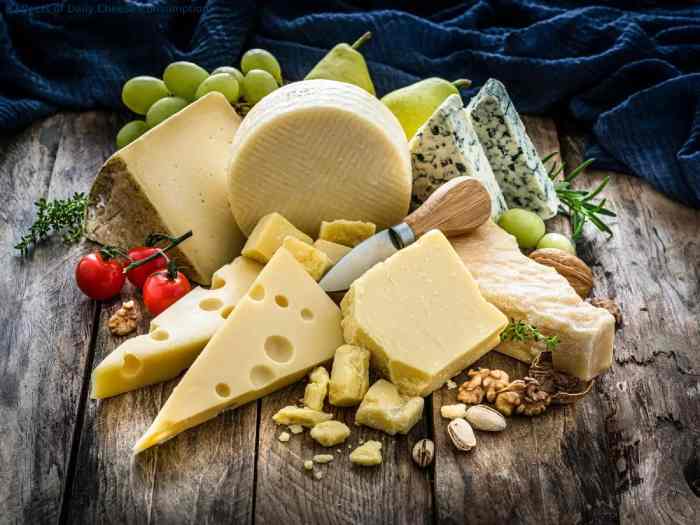After bread, cheese is one of the earliest foods that have been made. There are more than a hundred different types of cheeses, which are primarily consumed in Western nations. It is a popular component that may be used in various recipes, including appetisers, main courses, and desserts. It can be used either melted or shredded.
Despite how tasty it is, two-thirds of individuals suffer from lactose sensitivity to some extent. However, milk is evolutionarily adapted for digestion by young animals, whether they be mammals or not.
Table of Contents
What happens if you consume cheese consistently?
As a result, cheese has various advantages and disadvantages immediately once. The eight elements listed below are possible effects of daily cheese consumption.
1. Your cholesterol level might increase.
One of the foods with the most significant amounts of cholesterol is cheese. This is mainly caused by the product’s high milk fat content. Heart disease and stroke are two significant health issues that can be brought on by high cholesterol.
However, not everyone may experience this. It’s always a good idea to monitor your cholesterol levels, but if you already have a health problem, cheese may worsen it.
2. You could consume more of the daily nutrient.
On the plus side, cheese is nutrient-rich. One of the most significant and essential advantages of cheese is unquestionably calcium. Additionally, cheese is a fantastic source of vitamins A and B12. Phosphorus, zinc, and other minerals crucial for health are also present. Thus, eating cheese regularly may significantly reduce the need to take vitamins as pills.
3. You could put on weight
If you’re trying to lose weight, you should consume something other than cheese in large quantities. On average, 100 calories are included in one ounce of cheese. Furthermore, consuming cheese as a snack is simple without thinking twice.
Therefore, if you are watching your calorie intake, remember that it might be a meal for a “cheat day” and that you should consume very little of it. In addition, you must exercise by running, using a treadmill, or sitting on a luxurious adjustable bench in the gym.
4. You may shed pounds!
This might be perplexing!
However, following a high-fat, low-carb, and high-protein diet, you can eat cheese and still lose weight. Keto is a fantastic illustration of this diet. Not all cheese varieties, nevertheless, are advantageous for keto diets.
Delicious cheeses for turning fat into energy include cream , goat cheese. In addition, goat cheese is simpler to digest than cheeses made from cow’s milk.
Surprisingly, cottage cheese, a mainstay of previous low-fat diets, is useless for low-carb dieting.
5. Problems with the digestive system might occur
As previously said, adults find it difficult to digest milk. Any sort of milk is unwise for a lot of people. For some people, overindulgence is the root of their issues. You can feel irritated or have stomach cramps, bloating, diarrhoea, or intestinal gas.
Numerous things on the market can be used to make milk products more palatable. You must remember that if your body tells you anything is wrong, there is probably a good reason for it.
A cutting-edge nutritional supplement called Bio Complete 3 aids in promoting overall health and happiness. It has organic components that assist digestive health, including probiotics, prebiotics, enzymes, vitamins, and minerals. Additionally, it has antioxidants that support the body’s defences against free radicals, which are linked to ageing. You may anticipate more energy and better digestion with frequent usage of Bio Complete 3, which will also strengthen your body’s immune system.
6. You might raise your bone density
The importance of bone health increases as you get older. Eating calcium-rich food items like cheese might be a wise choice.
Additionally, calcium supports healthy muscles and strengthens teeth, as your dentist may have said. Your PCP could prescribe calcium if you have osteoporosis or osteoarthritis to try and limit the progression of bone deterioration.
Although neither infection will be cured by calcium, calcium is your most robust defence against further deterioration.
7. You can get skin problems
Guess! What else does the cheese’s fat promote? You are accurate to imagine pimples on the face.
If you eat a lot of cheese every day, you can break out like it’s prom night. The interaction of dairy products with your blood sugar levels is a problem. The same way candy and sweets stimulate your skin and remove pimples works here.
Therefore, you might have to cut back on the cheese if you’re worried about your skin issues.
8. Your risk of diabetes might go down.
Cheese could be more beneficial when it comes to blood sugar. According to studies, eating full-fat cheeses rather than low-fat can reduce the chance of developing type 2 diabetes. But type 1 diabetes does not appear to be affected by this.
You may be more prone to eating full-fat cheese on a low-carb diet. On the other hand, losing weight can lower your risk of developing type 2 diabetes. Therefore, whether cheese is healthier for you relies entirely on how you get there.
Alsoo read:-9 Foods to Boost Hydration this Summer







